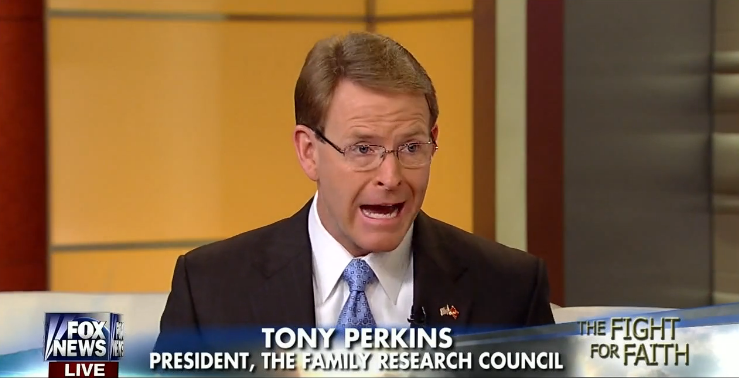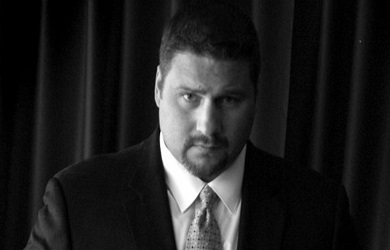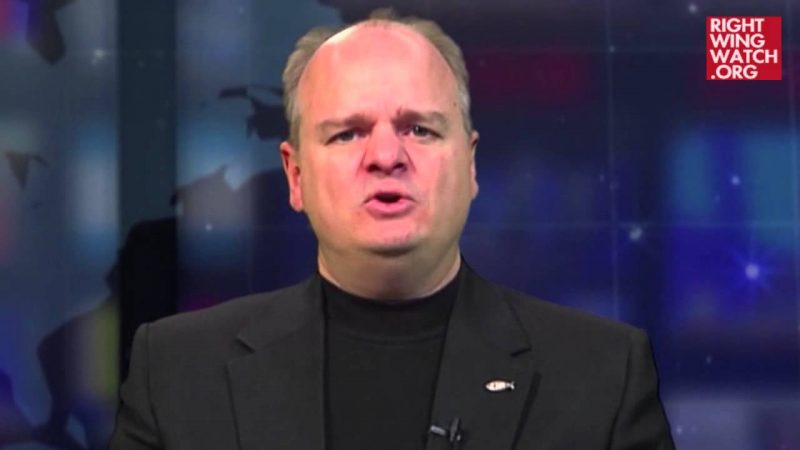After his group said that discredited and dangerous sexual orientation conversion therapy is “designed to bring homosexuals out of bondage and into healthy behavior,” Family Research Council president Tony Perkins maintained that such counseling is simply a “compassionate” and “nonjudgmental” way for gays and lesbians to find the “wholeness that has been eluding them in their current lifestyle.”
While speaking today with con man and ex-gay group leader Arthur Goldberg, who once again compared his embattled group to Weight Watchers, on Washington Watch Weekly, Perkins lauded conversion therapy as a way for gays to pursue “this path of wholeness.” Earlier this year, Perkins argued that gays and lesbians seek to “redefine the norms of behavior” because “there is an emptiness within them.”
Goldberg even claimed that gay rights activists are only pretending to claim that sexual orientation cannot be changed as part of a “pre-planned agenda,” and that people who failed at conversion therapy simply didn’t try hard enough.
Goldberg: This was actually part of a pre-planned agenda that was set forth in a book that they wrote called “After the Ball,” I know that one of your most scholarly staff guys Peter Sprigg has written on this and I’ve also written on this, my book is called “Light in the Closet: Torah, Homosexuality, and the Power to Change,” they spell out an agenda in their in which they say for example, tell people that we’re born gay: ‘We know we’re not gay, we know we’re not born gay, but that doesn’t matter.’
Perkins: This lawsuit, I would say it looks frivolous to me, it’s kind of novel. Their using a consumer law, consumer fraud is what they’re challenging here, that you’re promising one thing and not delivering. It’s kind of outrageous I think. You’ve said that it’s ‘without merit, designed to create a chilling effect upon speech and programs to assist people in overcoming these same-sex attractions.’
Goldberg: Correct. Their theory is basically if someone goes to Weight Watchers and says ‘I want to lose fifty pounds’ and they don’t lose fifty pounds, they’re going to say, ‘oh Weight Watchers you promised me you’d help me lose fifty pounds and I didn’t lose fifty pounds,’ same basic theory.
Perkins: Obviously the outcomes of any type of counseling is in large part determined by the patient following and genuinely perusing this path of wholeness.
Goldberg: Yes. In fact as an example, I don’t want to get into the facts of the case, but one of the plaintiffs talks about ‘I went to five sessions.’ Five sessions, hello? Is that any kind of long term involvement in terms of showing that you’re really serious about wanting to overcome?
…
Perkins: I think we’ve got to be very clear here. You’re here to help those who want help and it’s a compassionate help, a nonjudgmental help for those seeking a wholeness that has been eluding them in their current lifestyle.
Goldberg: Precisely.







